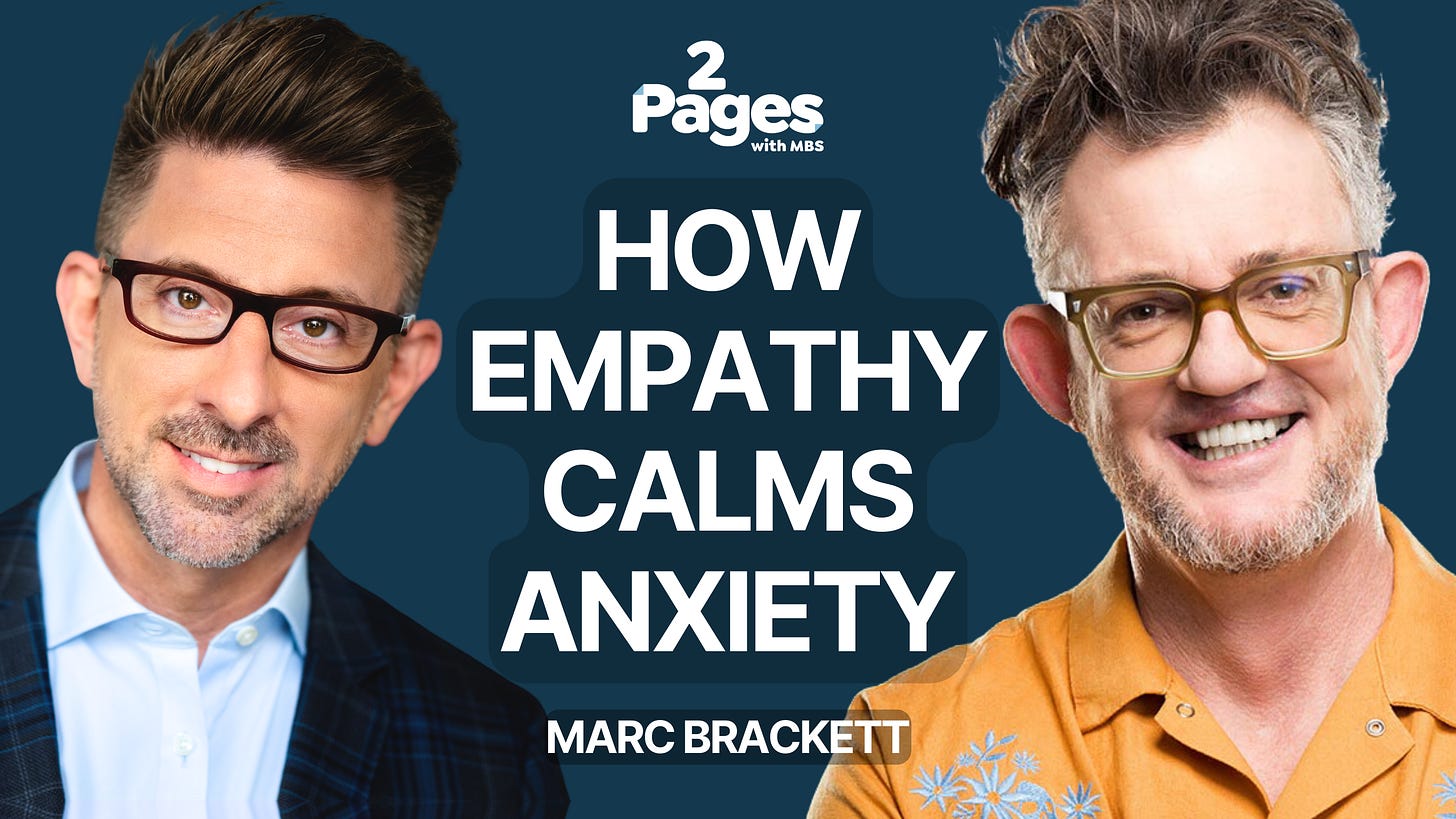Why Empathy Matters So Much
My friend Chester Elton has written a number of books with his co-author Adrian Gostick. His best known book, a NY Times bestseller, is The Carrot Principle … in short, carrots are better than sticks.
But he’ll say himself that his most important book is Anxiety at Work.
When I spoke to him recently, he laid out some disturbing statistics about the rise of anxiety at work, particularly among younger people. Here are a few. 50% of millennials have left a job because of a mental health issue. Which is terrible, but better than the numbers for Gen Z, where 75% have left for a similar reason.
90% of employees didn’t feel safe talking to their immediate supervisor about mental health.
What that told Chester, is that empathy is now indubitably an essential quality of leadership. It’s not woo woo. It’s not quote unquote touchy feely in that “can we just get on with business” way.
Driving empathy is curiosity, and two steal from a restaurant menu I read recently, “Curiosity: Two Ways”.
First, curiosity outwards, to that other person. Who are they, really? What’s going on for them, really? What matters to them, really? What are they feeling, really? You can see why I love good coaching questions.
Second, curiosity inwards, towards you. Who am I, really? What’s going on for me, really? What matters to me, really? What am I feeling, really?
What am I feeling? Really.
📕 My Guest: Marc Brackett
Mark Brackett is a psychologist and professor at Yale University, known for his groundbreaking work in emotional intelligence and the impact of emotions on daily life. He is the founder and director of the Yale Center for Emotional Intelligence. Through his book, Permission to Feel, and his work at Yale, Marc helps others give themselves permission to feel, and teaches them to create a safe space for emotional exploration.
🎧 How Empathy Calms Anxiety: A Conversation with Marc Brackett
Marc reads two pages from 7 ½ Lessons about the Brain by Lisa Feldman Barrett.
In our conversation, we discuss:
The Human Right to Emotional Expression
Expressing emotions freely is a fundamental human right, critical for mental and emotional health, advocating for environments that support emotional expression without judgment.
Personal Journey to Emotional Intelligence
Mark’s personal story of dealing with childhood experiences and having significant adult figures shaped his understanding and advocacy for emotional intelligence.
The Essential Nature of Emotional Vocabulary
Through discussions about the Feeling Words Curriculum, the importance of a rich emotional vocabulary is underscored, demonstrating its role in personal development and emotional regulation.
Challenging Emotional Myths
The common misconceptions about emotions, such as the pursuit of constant happiness and the categorization of emotions as good or bad, advocating for a more nuanced understanding.
RULER Framework for Emotional Intelligence
The RULER framework as a tool for developing emotional intelligence, emphasizing its applicability in educational settings and its impact on fostering healthy interpersonal relationships and personal growth.
Read the Interview
If you’d rather read than listen, no worries. Become a paid member now to access all transcripts as well as occasional solo episodes with MBS.
Keep reading with a 7-day free trial
Subscribe to 2 Pages with MBS to keep reading this post and get 7 days of free access to the full post archives.




